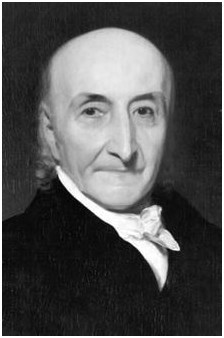History of New York University
USINFO | 2013-07-24 16:06

The history of New York University begins in the early 19th century. A group of prominent New York City residents from the city's landed class of merchants, bankers, and traders established NYU on April 18, 1831. These New Yorkers believed the city needed a university designed for young men who would be admitted based on merit, not birthright or social class. Albert Gallatin, Secretary of the Treasury under Thomas Jefferson, described his motivation in a letter to a friend: "It appeared to me impossible to preserve our democratic institutions and the right of universal suffrage unless we could raise the standard of general education and the mind of the laboring classes nearer to a level with those born under more favorable circumstances." To the school's founders, the classical curriculum offered at American colonial colleges needed to be combined with a more modern and practical education. Educators in Paris, Vienna, and London were beginning to consider a new form of higher learning, where students began to focus not only on the classics and religion, but also modern languages, philosophy, history, political economy, mathematics, and physical science; so students might become merchants, bankers, lawyers, physicians, architects, and engineers. Although the new school would be non-denominational – unlike many American colonial colleges, which at the time offered classical educations centered on theology – the founding of NYU was also a reaction by evangelical Presbyterians to what they perceived as the Episcopalianism of Columbia College.
A three-day long "literary and scientific convention" held in City Hall in 1830 and attended by over 100 delegates debated the terms of a plan for a university modeled on the University of London, which had been founded in 1826. The trustees of the new institution sought funding from the city and state, but were turned down, and instead raised $100,000 privately to start up the college. The school would make available education to all qualified young men at a reasonable cost, would abandon the exclusive use of "classical" curriculum, and would be financed privately through the sale of stock. Establishing a joint stock company was aimed to prevent any religious group or denomination from dominating the affairs and management of the new institution. Although the university was designed to be open to all men regardless of background, NYU's early classes were composed almost entirely of the sons of wealthy, white, Protestant New York families. Albert Gallatin, who had been selected as the university's first president, resigned in less than a year, disgusted that the curriculum which had been drawn up was not centered on the "rational and practical" learning he thought was essential to a secular education.
Share this page